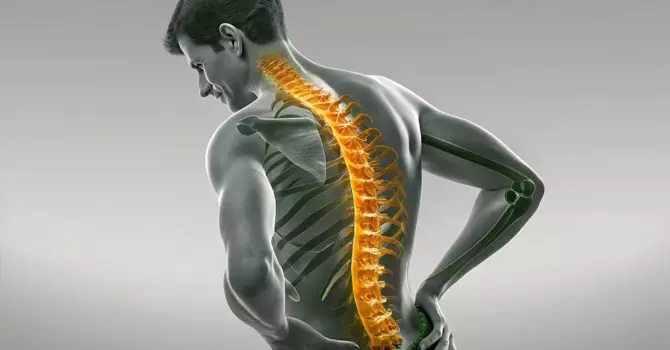
Stress and its Impact on Your Physical Health
We often think of stress as something that lives in our heads—worrying about deadlines, finances, relationships, or the future. However, chronic stress doesn't just affect our minds—it also manifests in our bodies.
From muscle tension and digestive issues to chronic pain and hormone imbalances, stress has far-reaching effects on nearly every system in the body. Recognizing this connection is the first step toward reclaiming your health.
In this post, we'll explore how stress affects the body, how to recognize the physical signs, and what you can do to manage it more effectively.
What is Stress?
Stress is your body's natural response to a perceived threat or challenge. When you encounter a stressor, your brain activates the sympathetic nervous system, triggering the classic "fight or flight" response.
This response leads to a cascade of changes:
- Increased heart rate and blood pressure
- Elevated blood sugar
- Tensed muscles
- Sharpened focus and alertness
- Release of stress hormones like cortisol and adrenaline
Stress can be helpful in short bursts. It can help you survive danger, focus under pressure, or push through a workout. The problem arises when stress becomes chronic and unrelenting—an everyday reality in modern life.
Chronic Stress and the Body: A Silent Saboteur
When stress response is activated too often or too long, it affects your physical health. Here's how:
1. Musculoskeletal System
Chronic stress can cause persistent muscle tension, particularly in the neck, shoulders, jaw, and lower back. Over time, this can lead to:
- Tension headaches
- TMJ dysfunction
- Chronic pain and stiffness
- Trigger points or "knots" in the muscles
- Postural imbalances
Stress also reduces the body's ability to recover from physical activity or injury.
2. Nervous System
When your body stays in "fight or flight" mode:
- Your parasympathetic nervous system (rest, digest, repair) is suppressed
- Sleep becomes fragmented or shallow
- Anxiety, irritability, and difficulty concentrating increase
This imbalance can create a cycle of poor recovery and heightened reactivity.
3. Cardiovascular System
Prolonged stress keeps blood pressure and heart rate elevated, increasing risk for:
- Hypertension
- Heart disease
- Arrhythmias
Inflammation from stress hormones may also contribute to atherosclerosis (hardening of the arteries).
4. Endocrine System
Chronic stress dysregulates hormones, including:
- Cortisol: which becomes chronically elevated or depleted
- Insulin: contributing to blood sugar imbalances
- Thyroid hormones: slowing metabolism and energy production
- Sex hormones: disrupting menstrual cycles, libido, and fertility
Over time, this can lead to adrenal dysfunction, burnout, and hormonal imbalance.
5. Immune System
Stress suppresses immune function, making you more vulnerable to:
- Frequent colds and infections
- Delayed healing
- Increased inflammation
It can also worsen autoimmune conditions by overactivating the immune response.
6. Digestive System
The GI system is susceptible to stress, leading to:
- Slowed digestion and nutrient absorption
- Increased bloating, gas, and indigestion
- Aggravation of IBS or reflux
- Altered gut microbiome and barrier function (leaky gut)
The gut-brain axis plays a key role here—stress in the brain affects gut health and vice versa.
Signs You May Be Physically Affected by Stress
Not all stress is obvious. Here are some subtle signs that stress is impacting your body:
- Jaw-clenching or teeth-grinding
- Shoulder and neck tension
- Headaches or migraines
- Fatigue despite adequate sleep
- Digestive problems (bloating, constipation, diarrhea)
- Acne or skin flare-ups
- Low libido
- Irregular menstrual cycles
- Chest tightness or heart palpitations
- Frequent illness or slow healing
You might chalk these up to "just getting older" or a busy schedule—but chronic stress is often the underlying cause.
How Chiropractic Care Helps Regulate the Stress Response
At Arthrology Chiropractic, we view stress as a whole-body experience. We don't just treat the symptoms—we address the underlying imbalances contributing to them. Here's how chiropractic can help:
1. Nervous System Regulation
Spinal adjustments stimulate the parasympathetic nervous system, helping to:
- Calm the fight-or-flight response
- Improve vagal tone
- Restore rest, digest, and repair functions
2. Muscle Tension Relief
We address stress-related tension through:
- Spinal and extremity joint adjustments
- Soft tissue work
- Postural correction
- Movement-based rehab
This helps relieve headaches, jaw pain, neck stiffness, and other physical signs of stress.
3. Movement and Breathing Guidance
Breathwork, mobility exercises, and corrective movement patterns support recovery and resilience—especially when integrated with nervous system work.
4. Lifestyle and Recovery Coaching
We help you build sustainable stress management routines involving:
- Sleep hygiene
- Physical activity
- Mind-body practices
- Nutrition and supplementation
Other Tools to Support Stress Resilience
You don't have to eliminate stress—you just need to improve your ability to recover from it. Here are simple, research-backed strategies:
1. Movement and Exercise
Regular physical activity helps reduce cortisol levels and boost endorphins. Gentle aerobic exercises, such as walking or cycling, combined with resistance training, are especially beneficial. Even just 20 minutes of exercise can lead to a notable improvement.
2. Breathwork and Mindfulness
Breathing slowly and deeply activates the parasympathetic system. Try:
- Box breathing (inhale, hold, exhale, hold - each for 4 seconds)
- 4-7-8 breathing (inhale for 4, hold for 7, exhale for 8)
Practicing mindfulness techniques, such as meditation, can be an effective way to manage stress.
3. Sleep Optimization
Stress and sleep are deeply intertwined. Aim for:
- 7-9 hours of sleep per night
- A consistent bedtime routine
- Limiting blue light, caffeine, alcohol, and heavy meals before bed
4. Nutrition
Blood sugar imbalances and nutrient deficiencies can worsen your stress response. Focus on:
- Whole, unprocessed foods
- Balanced meals with protein, fiber, and healthy fats
- Hydration throughout the day
Supplements That May Support Stress Recovery
Certain supplements can help regulate the stress response and support nervous system health. Examples include:
- Magnesium: relaxes muscles and supports nervous system function
- L-theanine: promotes calm without sedation
- Ashwagandha: an adaptogen that helps regulate cortisol
- Rhodiola: supports energy and resilience
- B-complex vitamins: crucial for energy metabolism and stress resilience
- Omega-3 fatty acids: reduce inflammation and support brain health
Always consult with a healthcare provider before starting new supplements, especially if you are on medication.
Final Thoughts
Stress often begins in the mind, but its effects extend throughout the body. This can manifest as tight muscles, hormonal imbalances, digestive issues, fatigue, and other symptoms. Fortunately, there are many strategies you can implement to build resilience and manage stress effectively.
At Arthrology Chiropractic, we take a holistic approach to stress recovery. Whether you're experiencing the physical symptoms of chronic stress or simply want to enhance your overall well-being, we're here to support you.

Edward Boudreau
Contact Me



.png)
